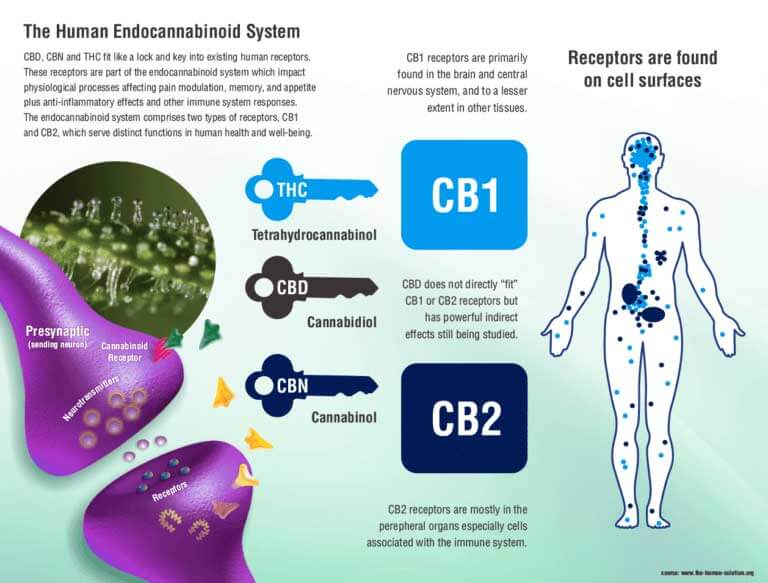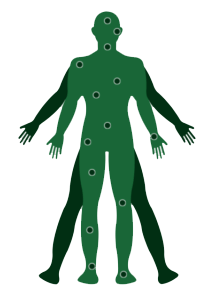CBD and ECS
Cannabidiol (CBD), and the Endocannabinoid System (ECS)
Cannabinoids are complex chemical compounds that act on receptors in cells. Similar to the hemp plant, which produces over 100 different cannabinoids (or phytocannabinoids), the mammalian body also naturally produces cannabinoids (or endocannabinoids). Within each and every mammal exists an Endocannabinoid System (ECS), which is comprised of a series of receptors with the sole purpose of accepting cannabinoids throughout the body. The ECS is responsible for physiological processes such as appetite, pain-sensation, mood and memory, and despite the multitude of functions performed in each area of the body, the primary objective of the ECS is always the same – homeostasis, as it is quite literally the bridge between the body and our mind.
Most interestingly, the ECS is not just affected by endocannabinoids (cannabinoids created by the human body), but it is also affected by plant-sourced cannabinoids, like THC and CBD. Of the 113 different cannabinoids found in the hemp plant, the two most prominent are tetrahydrocannabinol (THC) and cannabidiol (CBD). Although THC is easily the most popular cannabinoid due to its psychoactive effects, which result in the user feeling “stoned”, CBD has gained traction due to its non-psychoactive, therapeutic effects. When we inhale or ingest phytocannabinoids (like CBD and THC) along with other plant-based molecules (like terpenes and flavonoids), there is a synergistic effect, resulting in enhanced, therapeutic benefits.

The human endocannabinoid system
The ECS is comprised to two primary endocannabinoid receptors: CB1 (found predominantly in the brain, nervous system, and outlying organs and tissues) and CB2 (found predominantly in white blood cells, tonsils and spleen). Although CBD has low affinity for either of these receptors, it does interact with other nominal receptors with remarkable effects.
For more information regarding the Endocannabinoid System and Cannabidiol, check-out PubMed.gov, ProjectCBD.org, and Wikipedia.org!
Where Can CBD Help?
Discover the perfect product for your specific pain area.


